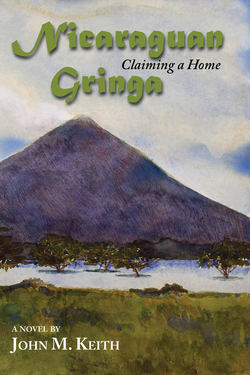Читать книгу Nicaraguan Gringa - John Keith - Страница 9
На сайте Литреса книга снята с продажи.
ОглавлениеTuesday, August 26, 1980
Sarah Rutledge experienced no strong feelings in the lobby of the Nicaraguan Ministry of Justice in Managua, neither repulsion at its drabness, nor anxiety in anticipation of what might happen, just impatience. She didn’t like sitting and waiting for the Chief Minister to see her and thought of leaving. The minutes seemed even longer because they were empty, because she was empty, ready to give up and give in. At least her wait didn’t stretch into hours. Within a half an hour a secretary called her into the office of Aldolfo Castillo López.
There were few signs of privilege and power in Castillo’s office—an old battered metal desk, three wooden armchairs and four straight chairs and one comfortable padded swivel chair for the minister, not even a carpet on the floor nor curtains over the windows. At the side of the room a table was piled high with maps and blueprints. On the minister’s desk were stacks of papers and a stapler. A very large, exquisite pre-Columbian jade carving served as a paperweight on top of a high pile of rumpled pages. It was insecurely balanced and could have fallen off and broken, even though it was probably worth hundreds of dollars.
“Buenos días (Good morning), Señorita Rutledge Lloyd. Please have a seat.” Castillo López shook Sarah’s hand and stared at her. His hands were cold against her palm as she thought the metal of the pistol on his hip would feel if she were to touch it. Her heart also felt cold inside her chest.
“Gracias (Thank you).” Sarah sat in one of the straight wooden chairs without an armrest.
“What do you want me to do for you?”
“I want to get a final decision about the disposition of my property.”
“Do you plan to stay in Nicaragua permanently and live on the finca (farm), or do you intend to sell it and leave the country?”
Weariness overcame Sarah. She could no longer pretend and deceive Castillo, perhaps because she could no longer pretend and deceive herself with tentative possibilities and illusions of happy resolutions. She had already collapsed and given up within herself, and there seemed no reason to maintain any outward resistance to the government’s program of confiscating foreigners’ property, no matter how much they might protest.
“When I came back to Nicaragua, I did not think I would stay permanently. After the revolution and the death of my father it has been difficult to operate the finca and the factory; but since I have been back, almost three months now, I have found it hard to think of leaving for good, forever. This is my home. I am a citizen of the United States, but I have always thought of Nicaragua as my real home. Quinta Louisa has been the home of my family for almost a century. I have not been able to decide whether to sell it and give it up or to stay. Right now I think I will leave, but I just do not know.”
Against her will Sarah was forced to dab away tears from her cheeks. Castillo’s face softened, almost as if it might show a human expression. She thought that telling the truth moved him more than her tears. His lancing stare had penetrated to the center of her ambivalent sentiments.
“If it is difficult for you to decide, you can imagine that it is also difficult, much more difficult, for the government to decide what is right in these matters. In times of great change not all matters are easily adjudicated fairly and justly.”
“What do you think my chances are for keeping Quinta Louisa at this point?”
“I cannot speculate. It will be decided on the basis of what this ministry and other officials think your true rights are. Some people want to curry the good favor of the United States government and make that a part of the issue. I do not personally think the issues of property settlement should be influenced by the international climate. I believe each case should be decided on its own merits.”
“Even if I decide to leave Nicaragua, surely I have the right to receive something in compensation for Quinta Louisa.”
The cold mask returned to Castillo’s face, and he made no reply. Sarah understood that rights and values were defined differently in the two worlds in which they lived, one socialist and the other capitalist.
